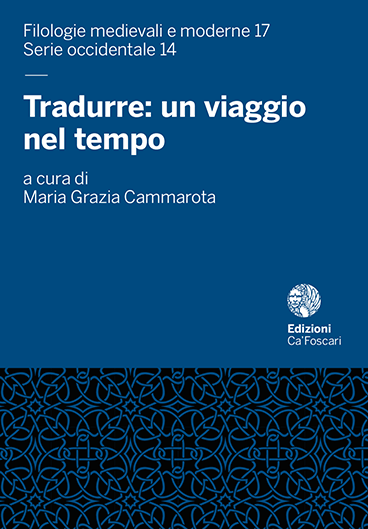Series |
Medieval and Modern Philologies
Review | Translating: A Journey in Time
Chapter | Swā hwæt?
Swā hwæt?
Percorsi interpretativi e scelte traduttive di una ‘parola fantasma’
Abstract
Under the most common interpretation, Old English hwæt, the very first word of the epic poem Beowulf, is to be considered as an interjection (e.g. Lo!). After discussing two theoretical positions that depart from this traditional assumption, i.e. the exclamative hypothesis (Walkden 2013) and the pragmatic marker hypothesis (Brinton 1996, 2017), this study aims at taking into consideration the hermeneutical and translational implications of the aforementioned theories. It will also be claimed that a virtuous synthesis of the two positions is not impossible; therefore, new translations of ancient texts are called for, in which such synthesis can be pursued.
Submitted: Jan. 17, 2018 | Accepted: Feb. 19, 2018 | Published May 24, 2018 | Language: it
Keywords Old English • Theory and practice of translation • Hwæt-hypotheses
Copyright © 2018 Marina Buzzoni. This is an open-access work distributed under the terms of the Creative Commons Attribution License (CC BY). The use, distribution or reproduction is permitted, provided that the original author(s) and the copyright owner(s) are credited and that the original publication is cited, in accordance with accepted academic practice. The license allows for commercial use. No use, distribution or reproduction is permitted which does not comply with these terms.
Permalink http://doi.org/10.30687/978-88-6969-248-2/005
